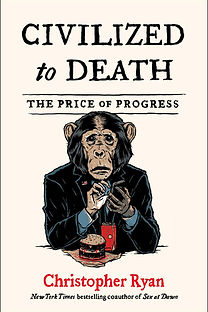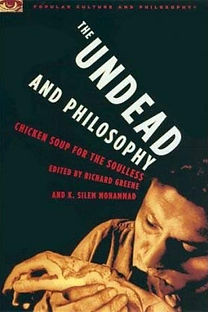Is Die Hard a Christmas movie? At least about as much as It's a Wonderful Life
.png)
There are many things that divide us, and over the last few years, few things have had the power to do so the way one fundamental question has: “Is Die Hard a Christmas movie?”
I suppose we must start with the idea of what exactly a Christmas movie is to begin with. Is it a retelling of the Nativity? A biopic of Santa, an elf, a talking snowman, a bullied reindeer? Or is it as simple as a film that takes place during the Christmas season, revolving around themes of hope, family, forgiveness, joy, etc.?
On the surface, Die Hard, the 1988 blockbuster action flick about a New York cop who takes on an army of terrorists in a Los Angeles high-rise building, is a Christmas movie in that it takes place at Christmas. In fact, Christmas, to some extent, is fairly central to the plot, at least in the sense that John McClane is out in Los Angeles visiting his wife Holly on Christmas, attending her company Christmas party with her. Turns out, there’s trouble in paradise in the McClane household, has been ever since Holly moved to California for her career, and McClane seems hopeful for some type of reconciliation. Unfortunately, Hans Gruber and his band of terrorist-robbers have other ideas, and John McClane turns out to be not any ordinary cop, but rather one with almost superhuman tendencies, single-handedly taking out the terrorists one-by-one.
Outside of the party, and a few iconic moments, (“Now I have a machine gun, HO-HO-HO comes to mind), the movie does not center around Christmas. Outside perhaps of the marital reconciliation, which does happen by the end of the film, there isn’t a lot of human drama, and that’s okay, it’s not supposed to. So … what does a movie need to be a Christmas movie?
The fact is that once upon a time, before the internet and before streaming services, there wasn’t a constant glut of holiday films, and many of us wanted more. I remember having entire VHS cassette tapes full of Christmas episodes, often of shows we didn’t even normally watch. Other tapes had Christmas films, some great, some less so, all in an effort to keep the spirit coming in anticipation of the actual holiday. And yes, one of those was Die Hard.
Let’s be frank: some movies with the aforementioned “Christmasy” themes aren’t always that good, especially in their syrupy sweet view of Christmas, a day in which families come together, often with disastrous results: political fights, public intoxication, a messy house, a lot of new debt, and a few extra pounds. It can also be a time of year that pinpoints, with laser-like focus, the harsh realities of those folks who may be alone or mentally ill. In short, it can be exhausting, and so, why not have a few unconventional “Christmas movies?”
And let’s take It’s a Wonderful Life. I’d go so far as to say there’s more Christmas in Die Hard than Frank Capra’s perennial classic. Just because George Baily runs down Main Street shouting “Merry Christmas” and the fact that there’s an angel in it, it has been a staple of American family Christmas traditions for decades.
And what of Lethal Weapon? I’ve said for years that Lethal Weapon is more Christmasy than Die Hard, or at the very least a really strong tie. I for one, increasingly like watching some of these unconventional Christmas movies, for while I love Christmas Vacation, A Christmas Story, and Miracle on 34th St., I’ve seen them gazillions of times. Sometimes it’s fun to watch a Christmas horror film or Yuletide action flick.
Action heroes, and the people who love them, need Christmas too. So if you and your family consider Die Hard a Christmas movie, go on with your bad selves. Saying there are only certain types of Christmas movies is like saying there’s only certain ways you can celebrate Christmas or certain things you can eat for Christmas dinner. In other words, not too cool.
You know what is cool? John McClane, in Die Hard, on Christmas. That’s pretty cool.
Parker's Take on What You Should Watch this Spooky Season. Some Obvious, Some Not So Much.
Everyone knows I am a Halloween guy, and while I dabble in horror all year long, there is nothing quite like a spooky movie when it's cold outside, when the leaves are falling and when the pumpkin spice is flowing. Here are a few of my favorites from when I was younger (and a few way older) to watch during Spooky Season.
-
Fright Night (1985)
Fright Night, starting Chris Sarandon as a vampire that has just moved into a suburban neighborhood and William Ragsdale as the young teen who lives next door, is both campy, kitschy fun and a classic that was ahead of its time. The film is a mash up of classic vampire tropes and an 80's horror flick, complete with crosses, holy water, and teen protagonists. The movie in essence if a modern retelling of Dracula, complete with the young damsel that the vampire focuses on, and it even has the Van Helsing character, Peter Vincent (a nod to horror greats Peter Cushing and Vincent Price), played by Roddy McDowell. And yet, in what we would describe today as meta, our vampire killer is one in name only, he's an actor who merely played a vampire hunter in campy horror films, now a host of a local horror show. McDowell and Sarandon turn in great performances - McDowell is funny and sympathetic and Sarandon is as smooth as silk as Dandridge. The movie has good special effects for its time and is rollicking good fun.
2. The Black Cat (1934)
Halloween isn't complete for me without at least a couple of black and white classics, and one of my favorites is 1934's The Black Cat, starring horror icons Bela Lugosi and Boris Karloff as two life long enemies out to settle their score once and for all. There were numerous Lugosi/Karloff films back in the day, as the studios tried to recreate the mega successes that were Dracula and Frankenstein.
For my money, though, The Black Cat is the best. Lugosi and Karloff both deliver strong performances, Karloff as the murderous architect Hjalmar Poelzig and Lugosi as Dr. Vitus Werdegast, a Hungarian psychiatrist in search of his daughter, whom he thinks is being held captive by Poelzig (yep, Lugosi is the good guy in this). While dated, maybe even a little cringey as old movies can be, it is atmospheric and even a little gruesome for a movie of its time.
3. Prince of Darkness (1987)
Arguably John Carpenter's most frightening film (though The Fog is pretty damn close), Prince of Darkness is about a group of graduate students tasked with investigating a mysterious object (think a swirling cylinder of glowing green slime) found underneath an old Catholic Church that just happens to be the prison of a terrifying supernatural force. The movie stars all character actors, the most famous of which is Donald Pleasance of Halloween fame, the results of which are a cast not of stars but good actors that turn in good performances as they accidentally let loose the evil that is hidden underneath the church. The scenes with the horde of homeless people outside and the dream every one of the students have while asleep - a warning from the future about what is to come - still freak me the hell out.
4. Candyman (1992)
I saw Candyman when it was released on video and didn't think that highly of it, for whatever reason. As an adult, however, Candyman has become one of my favorites. The soundtrack is creepy and great, the at times slow, quiet pace adds to the suspense, the social commentary is relevant today, and it's dark, gruesome, legitimately scary, and stars genre legend Tony Todd as the title character, a local legend that turns out to be terrifyingly true. There are sequels that followed the original, but I'd skip those and jump to the 2021
sequel of the same name. It's great too.
5. Night of the Living Dead (1968)
If you are any kind of fan of zombies and have not seen the original Night of the Living Dead, you are long overdue. George Romero, through this film, basically created the zombie apocalypse genre as we know it. A group of survivors converge on a farmhouse and attempt to work together to survive as it becomes surrounded by the living dead. If the plot sounds basic and unoriginal, that's because everything that has come after it has imitated it.
6. Mirror, Mirror (1990)
This is a random pull, but frankly, that was how I discovered this movie, coming across it on cable TV in the middle of the night more than thirty years ago. Kind of a typical plot, mom and daughter move into a spooky new house with an uber-spooky mirror that starts to exert its sinister power on the young, socially awkward and bullied daughter. I found this movie legitimately creepy back in the day with a spooky soundtrack to boot. Apparently, and I didn't realize this, there are sequels, and the movie has become something of a cult classic. I guess a lot of us discovered it on HBO or Cinemax when we were kids.
6. Witchboard (1986)
Another campy cult-classic, Witchboard can also be pretty darn scary if you're watching it in the dark around spooky season. This movie is hard evidence why you're not supposed to mess with Ouija boards, and come on, the monster's name is Malfeitor. If that isn't a super cool name for a demonic serial killer, I dont know what is.
7. Demons (1985)
Full disclosure: I haven't seen Demons in decades, but I remember it scaring the heck out of me when I did - I remember hiding under my Gi Joe sleeping bag while watching it. People are invited to a screening of a horror movie at a recently remodeled movie theater. After one of the guests gets scratched by a mysterious silver mask, all hell breaks loose, figuratively and literally. I'll be watching this one this year.
8. Killer Clowns from Outer Space
There's something about a circus that just makes you think of Spooky Season. When I was a kid, small carnivals appeared in the mall parking lot and I always looked forward to them. I might not have included this, another movie that has become a sort of beloved cult classic (Spirit Halloween has an entire section dedicated to costumes and props from the film), but I came across it recently on PlutoTV and watched it for the first time in ages. Sure, it's a B movie with an outrageous concept, but it is deliciously wicked fun and the makeup effects are pretty darn good.
9. Event Horizon (1997)
Event Horizon, about an experimental space ship and its crew that quite literally goes to hell, is a very atmospheric and scary movie that starts out as a sci fi picture that turns into a nightmarish horror movie. This movie has a great cast, great, creepy pacing, and is scary as hell. Pun intended.
10. In the Mouth of Madness
Another classic from John Carpenter, In the Mouth of Madness follows insurance investigator John Trent (Sam Neill) as he searches for missing horror author Sutter Cane (again ... the name alone gets two snaps up) who, as it turns out, has used his writing to tap into an ancient evil he is about to unleash on earth.
Honorable Mentions (and the obvious ones):
- Halloween (Duh)
- The Exorcist
- The Omen
- Halloween III (very underrated)
- Near Dark
- Hellraiser
- The Nightmare Before Christmas
- Dracula (pretty much any version, but 92's Bram Stoker's Dracula and Lugosi's '31 are legit)
- Frankenstein
- An American Werewolf in London
- Sleepy Hollow
- Beetlejuice
- Monster Squad
.png)
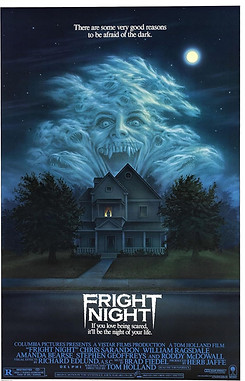
.jpg)

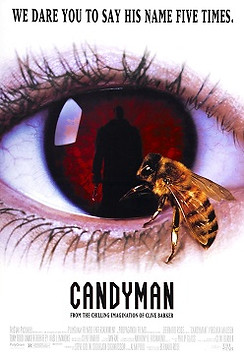
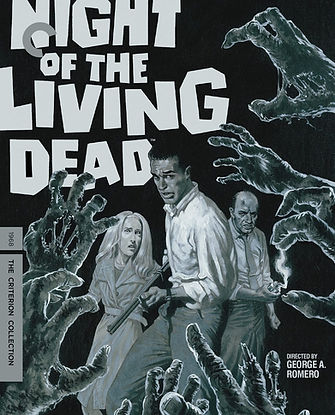

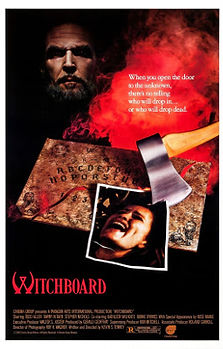
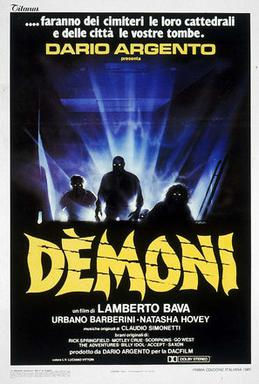
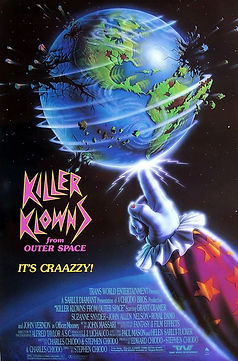
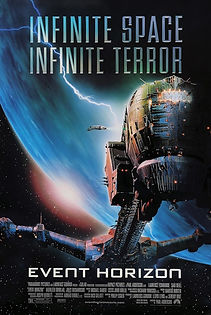

Binging The Twilight Zone this Fourth of July? Here are a few episodes that you should try and catch.
The Fourth of July. Fireworks, hamburgers hot dogs, and ... The Twilight Zone? If you're anything like me, Rod Serling's timeless show is as much a part of your July 4th traditions as sparklers and barbecues. Growing up as a kid, I only recall Twilight Zone marathons on Thanksgiving Day (in San Diego, it showed on channel 5 KTLA). The Syfy channel started showing marathons of the show on New Year's Eve and Fourth of July a few years back (and apparently, the tradition of a Star Spangled marathon is older), and for some folks, it has become a staple of their holiday traditions.
If you know me, you know I love the Twilight Zone, for my money, it's one of my top three favorite TV shows of all time and one of the greatest TV shows ever made (I'm such a dork for it, a student once compared me to Tobey McGuire's character in Pleasantville). Serling's idea was to tackle modern problems under the veil of science fiction and horror, knowing full well that if he addressed the hot-button issues of his era directly, the censors would cut his episodes to ribbons. The result is a masterpiece of storytelling that continues to influence pop culture today. It features great actors with some of the best acting you'd see on television in the late 50s, early 60s, and features plots that still resonate today. Not every episode is great. While there are so many that are poignant, a few that are genuinely scary, there are also several that are just downright cringey, and that's okay, because the cringe is coated with a bit of nostalgia, too, that makes even those iffy episodes worth watching.
This Fourth of July, if you're planning on watching The Twilight Zone in between your hot dogs and Grand Finales, here are a few episodes if you haven't seen yet, you should try and catch. (NOTE: This is not a "best of" list - there are plenty of other websites out there with those, and I have learned over the years that most of us seem to like the same episodes. The ones listed here are perhaps a bit lesser well known that I think are worth seeing).
-
"Nightmare as a Child" (Season One, Episode 29)
"Nightmare as a Child" is an example of The Twilight Zone being ahead of its time, the episode being all about the scars of unresolved trauma and repressed memories. In it, a woman named Helen meets a curious little girl sitting on the stairwell outside her apartment. This little girl, eccentric and serious, seems to know a lot about Helen, things she shouldn’t know. Things take a turn when a former neighbor, Peter Selden arrives, and has a genuinely creepy conversation with Helen. It seems as if he lived in the building when she was young, delivering the oh-so-creeperish line of, “I had a terrible crush on you when you were a little girl.” In short, the reappearance of this scary old neighbor and strange little girl has something to do with Helen’s past and a trauma she experienced when she was just a child. When the trademark Twilight Zone surprise ending comes, it probably isn’t too big of a surprise, especially for a modern audience, but it works. This episode, which originally aired in 1960, deals with some heavy mental issues without naming them, and is pretty dark, even for a TZ episode.
2. “The Changing of the Guard”
“The Changing of the Guard” centers on Professor Ellis Fowler (Donald Pleasence), an aged English Literature teacher who has been in
the classroom for 51 years. When he is told by the school that he must retire, he questions his life’s work, ultimately deciding that he’s
spent the last 51 years doing nothing that made a difference, and decides to end his life. Naturally, the Twilight Zone has other ideas,
convincing him not to in the way only it can.
Pleasence is terrific as the elderly Professor Fowler in another fine example of how the show could secure some of the best actors of its
age. And the episode showcases the brilliance of Serling’s writing. For man who, as far as I know, never taught in a classroom,
he somehow captures perfectly the Dark Night of the Soul that all teachers eventually face as they wonder if what they do makes any
difference. A must-watch, and it’s a Christmas episode, so watch it around the holidays.
3. “An Occurrence at Owl Creek Bridge” (Season Five, Episode 22)
Arguably one of the most unique episodes on the show, “An Occurrence at Owl Creek Bridge” was not originally produced for television.
It is actually a short French film adaptation of the short story by Ambrose Bierce of the same name. The winner in the Best Short Film
category at the 1962 Cannes Film Festival and Best Short Film at the 1963 Academy Awards, it was picked up by Serling and shown as an
episode of the show in 1964.
Originally written in 1890, the story follows Peyton Farquhar, a sympathizer with the South during the American Civil War who is about
to be executed by Union troops for tampering with a bridge (If memory serves me from the story – he helps blow it up). As he is hanged
from the tree the rope breaks and he makes a mad dash through the countryside to get back home while being pursued by Union troops.
The “surprise ending” isn’t much of a surprise, at least to modern audiences, but remember that the source material was written in the
1800s. The episode is beautifully shot, and while some of the music is a little cringy, you can see why it won such high honors.
4. “Come Wander With Me” (Season Five, Episode 34)
Singer Floyd Burney comes to a small country town in search of new material, where he hears a woman singing a haunting tune about
two young lovers who meet in the woods. Thinking it’ll be a hit, he offers to buy the rights, but she refuses. The song, “Come Wander
With Me,” ultimately is telling the story of the episode itself, the woman, Mary Rachel, adding to it as the drama unfolds. The Rayford
Brothers, one of whom is Mary’s husband-to-be, arrive on the scene thinking poor old Floyd was trying to steal his woman and start
hunting him.
The story of the song, which is truly haunting and creepy, turns out to be prophetic. This is an episode I had never seen until a few years
back and can’t believe I’d missed it for so long.
5. “The Encounter” (Season Five, Episode 31)
“The Encounter,” starring Neville Brand as Fenton and a very young George Takei as Arthur, has become one of my favorite episodes. It
tackles PTSD, generational trauma, the ghosts (both literal and metaphorical!) of war, and racism like a superbly written one-act play.
Recently fired, divorced, and alcoholic World War II veteran Fenton pays young Arthur to come cut his grass. What plays out is a well-
written, well-acted two-man show where both men confront the demons of the past – Fenton with his own actions during combat and his
lingering racism against the Japanese, and Arthur facing the actions of his father. There is a paranormal element to this episode but
frankly it is unnecessary, it would have played just fine without it. At its core it's about two men suffering the effects of war long after its
past, and while their “encounter,” as it were, could be one of understanding and reconciliation, it ends up revealing that some wounds
and prejudices go to do. Oh, and if you've never seen this episode, it is likely due to the fact that it was pulled from syndication due to its
racial overtones until 2016. It’s brilliant.
Honorable Mentions
If you get through these five and if The Twilight Zone is new to you, here are a couple other ones you should check out.
"I am the Night - Color Me Black"
"The Big Tall Wish"
"The Masks"
"The Fever"
There are so many more I can mention, but these should get you started. Happy Fourth of July!


Helen (Janice Rule) questions the strange and curiously familiar Markie (TerryBurnham)

Donald Pleasence as the bookish Professor Fowler
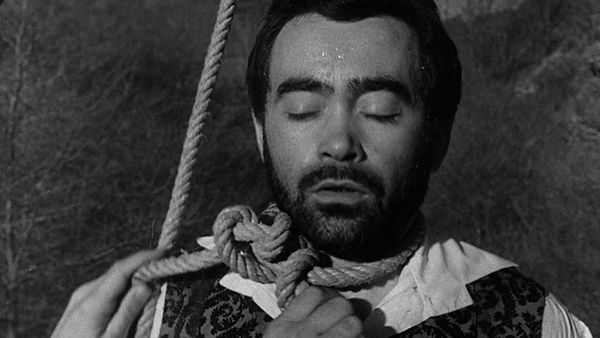
Peyton Farquhar (Roger Jacquet) about to be executed by the North.

Floyd Burney (Gary Crosby) strums his guitar for Mary Rachel (Bonnie Beecher)

Arthur (George Takei) looks on as Fenton (Neville Brand) shows off his warn uniform.
.jpg)
Can Superman and Fantastic Four: First Steps resurrect the superhero craze? Maybe, maybe not (But I kinda hope they do).
It is hard to trace the beginning of the superhero craze that dominated American cinema for well over a decade. Though the Marvel Cinematic Universe (from here on referred to as the "MCU") was launched with 2008's Iron Man, the movie going public's appetite for superhero films (and the industry's insatiable appetite for established audiences) is not new. The first superhero movie based on a comic book was 1941's The Adventures of Captain Marvel (not the one you know played by Brie Larson, this would be from Shazam). There's also a Batman serial from 1943 and a Superman TV series from the 1950s. While Iron Man introduced the movie going public to Marvel, and launched a franchise that changed cinema forever, I would actually trace the explosion of comic book films to 1989's Batman, directed by Tim Burton and starring Michael Keaton (I am NOT ignoring 1978's Superman, which in my opinion, is the greatest superhero movie ever made).
I choose Batman because it became a cultural sensation. Between Batman and Batman Returns, you saw people who probably had never so much as opened a Batman comic book wearing Batman t-shirts. Kids got Batman toys. Batman was everywhere. And why? It was directed by a young auteur who brought not only a unique vision but also stayed true to the source material (something many comic books films prior, incredibly, seemed to forget to do). It had both bold and no-brainer casting with Michael Keaton as Batman/Bruce Wayne and Jack Nicholson as the Joker.
The second wave of superhero movies, which I believe to be a precursor to the MCU, was 2000's X Men. This film, like 89's Batman, stayed true to the source material, had incredible, no-duh casting, along with some bold choices, and launched a franchise. The stage was set for the MCU, which came on like a freight train and rolled over the rest of the industry.
What became known as the "Infinity War Saga," comprised of 23 films, was an unprecedented success, a box-office juggernaut and pop cultural phenomenon that took the world by storm. For a kid like me, who grew up reading all these comics, it was unbelievable. Those films did things fans of the 80s and 90s never thought possible. Much like with 89's Batman, you saw (and still see) people everywhere wearing Marvel gear. Again ... people who have never read a single comic book in their lives. And these are the people that made these films successful. It wasn't the comic book fans, as much as we'd like to believe it, for while there are a lot of us, there aren't enough to generate that much in box office and merchandise sales. No, it was John Q. Public who got swept up in Marvel Mania. And why? Because the Marvel Movies were good. Some of them great. The idea of an interconnected universe of films which featured mutual characters and storylines had never been done before. People ate it up.
But ... with the conclusion of the Infinity War Saga, people were ready to move on. At least a lot of them were, anyway.
So what has set in since has been what some are calling "Superhero Fatigue." A lot of that has to do with the fact that some of the stuff that Marvel and Disney have put out since the Infinity War films has been less than stellar. Thor: Love and Thunder was borderline awful. Doctor Strange: In the Multiverse of Madness was meh. Some of the TV shows have been great (Wandavision, She-Hulk, Daredevil) and some have been mid (Moon Knight). And in all cases, none of them have held a candle too nor captured the audiences attention like the Infinity Saga.
Notice I haven't said much about DC. Anyone who knows me well enough knows I love DC Comics. I won't go into their own foray into cinema much here, as their quality was like watching the stock market go up and down.
This summer, DC Films will release a Superman reboot helmed by anointed-savior James Gunn, and Marvel will release the long-awaited MCU version of the Fantastic Four. The hope is that both films will inject new life into the superhero genre. But will they?
DC has struggled to launch a cinematic Superman franchise since the late, great Christopher Reeve days (not counting various successes with TV versions, such as Lois & Clark, Smallville, and Superman and Lois). Don't get me wrong, Henry Cavill was a decent Superman in mostly disappointing movies. The Synder films were rightly criticized for being too dark and not learning the lessons of the aforementioned Batman and X Men: stay true to the source material. Superman as a character can't have a "bad day" because he's so powerful, if he loses his cool, he could level a skyscraper. Chris Hemsworth's portrayal of Thor in the MCU should be their guide. On the surface, Thor is a super-powered Viking warrior. Hemsworth portrayed the character not only true to the source material but light, and the audience got the joke. I hope David Corenswet has a successful run at Superman and hope that James Gunn gives the audience the Superman they've waited for. The idea seems to be that if anyone can do it, he can. This was the guy who made successes of The Guardians of the Galaxy and Peacemaker, characters only diehard comic book fans know. Those characters, however, aren't Superman, and in watching the trailer, there are some odd choices: they've included Krypto, the Superdog, an idea that will either work somehow in the way that James Gunn seems able to make weird ideas work, and then there's the inclusion of the rest of the Justice League, which is a trap so many superhero movies fall into, including every character possible. Some may say that the Superman character doesn't work, but people loved Chris Evans as Captain America. I think Superman as a character can work in today's world, now more than ever, perhaps, as superhero films and comic books have always enjoyed their greatest successes when the world is in peril. The future of the DC cinematic universe rests on Superman's success. It seems safe to say, if the movie bombs, that will put a lot of future projects on the shelf.
Marvel has struggled to bring the Fantastic Four to the screen almost as much as DC has struggled with Superman, which is funny, because like Superman, the FF is a flagship property. The key to the Fantastic Four is portraying them as a dysfunctional but close-knit family (which frankly seems like a dynamic more befitting James Gunn ...). From the trailer, the characters look great and seem true to form. Like Gunn's Superman, there are some strange choices here, mainly that this movie takes place in the 1960s, decades before the other films of the MCU and possibly even set in a different universe (I don't think I've ever typed that word so many times in my life). This choice, like the inclusion of Krypto and other things in Gunn's Superman, will either end up being a stroke of genius or an epic fail.
What has been missing from some of Marvel's other recent offerings is one of the things that people loved about the Infinity War Saga: the cohesion amongst films. Again, as these films' box office is dependent on non-comic book fan dollars, people may look at the talking rock guy, stretchy man, and floating robot, and say, "No thanks."
I don't think the success of the Fantastic Four: First Steps, is as high stakes as the success of Superman is, if for no other reason than the engine that powers Marvel, Disney, is loaded with cash and can shrug off a box office disappointment better than most studios. While Marvel has had a few missteps lately, they've had some successes, too, such as Daredevil: Born Again and Deadpool & Wolverine. If the Fantastic Four doesn't strike gold, the MCU will go on. It is harder to say the same about DC and Superman.
Superman and the Fantastic Four are two of my favorites and represent some of best, most fundamental things about comic books: family, loyalty, bravery, and an inherent goodness, even in the face of insurmountable odds. In this post-modern world, these are ideas that don't always resonant with the audience, or don't they? Given the success of the MCU and some DC offerings, I would say they do, especially in times of crisis. I think that people will turn to these two films and six characters as signs of hope, as modern-day myths to inspire them through dark times. At least I hope they do. I know I will, and dammit, I hope they're great.

Does Disney need to make a "live action" version of every one of their classics? No, probably not, but toxic fandom is the real problem.
In 2016, the Ghostbusters reboot, starring Melissa McCarthy, Kristen Wiig, Kate McKinnon, and Leslie Jones, famously drew criticism from fans for its all-female cast. Worse yet, African-American comedian Leslie Jones was trolled mercilessly online for her appearance and for being black. A year later, Star Wars: The Last Jedi's Kelly Marie Tran grew so weary of the racist treatment she got online that she cancelled her social media accounts. When the first trailer for 2023's The Little Mermaid was released, I recall seeing comments on social media from people saying things like, "There's no way in hell I'm taking my kids to see this crap." And now, in 2025, Disney has announced that press won't be allowed at the premiere of Snow White after controversies surrounding stars Rachel Zegler and Gal Gadot (Zegler has drawn ire from toxic fans for being Latina and making statements in support of Palestine while Gal Gadot, who is Jewish, has drawn fire for pro-Israel comments). Differing with celebrities about their political views is hardly new but like everything else along these lines in the modern world, we seem to take it to the extreme. I applaud people for staying true to their beliefs and if a celebrity espouses something you don't believe in, then by all means, don't pay to see their movies, buy their music, etc. The concept of outright banishment, often referred to in the modern world as "cancelling," however, character assassination, and online bullying and trolling goes much too far for my tastes.
There's no question that people are passionate about these films, but the not-so-quiet outrage when say, the gender of a character is changed or an actor of a different race is cast exposes an ugliness in our society, one that is not new and not a fluke, no matter what some people like to think, but one that has been given a platform with the internet and social media. There's another trend in films these days: the taking of a beloved character and injecting them into a horror film. As everyone knows, I'm a horror guy, but the fact that people are less outraged that Mickey Mouse is a serial killer in 2024's Mouse Trap, or that Winnie the Pooh and Piglet are homicidal monsters in Winnie the Pooh: Blood and Honey (which also has a sequel, by the way) than they are about an African American Ariel, a Latina Snow White, or an all-female Ghostbusters cast says a great deal about where we are as a culture today (Oh, and if those films sound interesting to you, then you'll be excited to know that Peter Pan and Bambi have their own blood-soaked adventures on the way thanks to all these properties entering the public domain).
This reminds me of what comedian Chris Rock called "selective outrage" in his 2023 comedy special of the same name. Recasting beloved children's cartoon characters as blood-thirsty monsters is harmless fun, recasting them with people of other races or with someone's whose political views don't match ours, now that's outrageous.
I am not the biggest Disney fan in the world, at least not compared to some, but I am a huge fan of a lot of popular franchises and as such, I can be a purist about stories and characterizations, too. But I also realize that endless sequels, requels, reboots, and recasts are inherently harmless. If the new Snow White film is bad, what exactly does that do to tarnish the original? As an avid reader, I've watched countless adaptations of beloved novels that are terrible movies, and if anything, they make the source material stand out even more, not less.
Art, in all its forms, reflects the world and culture from which it comes, and as we live in an increasingly diverse society, the casting of existing characters with actors of color is only a natural expression of that. And, NEWS FLASH, we were a diverse society in the 1930s when most of these movies came out. Watching an old movie with a class once, a Latino student asked me something like, "What, did they just pretend there weren't any Latinos back then?" Basically, yes. Leave it to Beaver would also have you believe that suburban life was pristine and perfect as well as yes, Lilly-White. The John Hughes movies of the 80s and 90s made a kid like me, who always lived in small ranch houses, that once you become an adult, you'll live in some palatial two story mansion with a dozen bedrooms, homes that even then, were likely far out of the price range of most families. Film and television have never been about reality, at least on a fundamental, commercial level, as most of our myths, legends, and stories are not. They represent ideals. Aspirations. Hopes, dreams, and fears. If we object to a black Ariel or Latina Snow White, what does that say about our hopes, dreams, aspirations, and worst yet, our fears?
Some people may feel uncomfortable with minority actors cast as originally white characters, perhaps feeling that they can't relate to them because they don't look like them? That was the case for millions and millions of black, Latino, Asian, Native American, Indian, and Arabic Americans for almost a century of Disney, Warner Brother's Looney Toons, comic books and action movies.
Perhaps we can turn our toxic fandom, our selective outrage and that discomfort at seeing a hero or heroine that doesn't look like ourselves into something productive, into dirty words like dialogue and understanding. Perhaps, if we don't agree with our neighbor, our favorite influencer, or the star of a movie we want to see, we can perhaps try and see where they are coming from and why they think they way they do? Crazy ideas, I know.
The fact is that no, Disney does not need to make live action versions of all their classics. Some of them rely so heavily on CGI that their "live action" iterations are almost indistinguishable from their animated versions. The first time I saw the trailer for the upcoming "live action" version of How to Train Your Dragon, I didn't even realize it featured real actors until more than half way through it. If they look silly to you, don't go see them. But those among us who attack others - I remember, after the release of Star Wars: The Force Awakens in 2015, online trolls tore into Carrie Fisher for how terrible she looked. I would LOVE to see a side-by-side photo of those people as they so bravely insulted a 59 year-old woman via social media post with a picture of what they looked like now compared to 40 years ago. Complaining about Asian actors in Star Wars, about Disney characters recast with minority actors is indefensible. It's wrong on every level. If these films are supposedly for children, what are we teaching them when we act like this?

Is it okay for self-published authors to use AI to create their covers?
I am old enough to remember when the internet came on the scene, but frankly, I don't remember too much about it. I remember hearing little things about it here and there, and I eventually had some friends that used it, upon which I was introduced to the amazing world of chatrooms and dial up internet speeds. At first, it was little more than a curiosity, a fun new computer tool that you could have a little fun on, not something that would eventually change how we live our lives.
I know, having done some research, that along with the proliferation of the internet, there was conversation happening that forecasted nothing short of the end of learning and perhaps humanity itself as a result of this new technology (and who knows, maybe they were right!). If you read those articles now, they sound a lot like the things people are saying about AI.
I follow a lot of writing groups on Facebook and get a lot of articles forwarded my way, and there seems to be a split in how people view AI. Some think it will destroy creativity as we know it and some think that opposite, that it will even enhance it.
There are some writers out there in the self-publishing world that seem vehemently opposed to the usage of AI in the publication of books, even using it to create cover art. When you read the comments on these blogs, Facebook pages, etc., they often read something like, "I am sick of this AI crap" or "The rest of us out here are doing it ourselves!" or stating flatly, "I wouldn't touch this crap based on the AI cover."
So ... should writers use AI in the production of their self-published books?
There are passionate arguments on both sides of the issue and I tend to respect both camps. New technology, especially one with the enormous potential and implications of AI, always causes a great deal of anxiety in a culture. Change is always hard and we seem to regard every new technology as the death of an older one. Television was going to kill radio, streaming was going to kill TV, streaming music was going to kill records, and so on. Today, radio is still big business, television, while changed, is still here, and people still buy vinyl records. Without question, new technology has changed the way we interact with our entertainment, but it hasn't destroyed it. While the emergence of these new technologies has impacted these industries - and every industry in our society, said industries, if they are to survive, must adapt, which I wonder if that is not the bigger problem. It is hard for people, from corporations on down to individuals, to think outside the box and adapt their thinking. But if we don't adapt, we don't survive (see: Blockbuster Video).
Don't get me wrong ... I have a great deal of concerns with the proliferation of AI technology and worry what it will do to creativity, learning, business, human interaction, any number of things, for while my generation was here for the emergence of the internet, AI is the internet on steroids. As an educator, I don't advocate for using AI to write your essays and do your homework, nor do I think writers should use it to write their stories or novels. Is it possible though, over the next decade or so, our concepts of what it means to "write" and "do our own work" might change? These are some of the conversations we are having in education and are wondering what that will look like, and if AI continues to advance - and it will - keep that in mind, this is just the beginning, AI will only get more and more advanced, so whether I like it or not, and yes, we might have to change some of our ideas about creativity, and that is scary. However, I can't deny the amazing potential for AI as a tool.
I have been an avid user of AI for the past year or so. I often go to AI first to ask a question before I go to a search engine, because I often get a more concise answer. I have had it explain concepts I don't understand. I have used it in my work to generate ideas for teaching lessons. And while I have not used it to write text for any of my books and short stories, I have used it to create my covers.
I would love it it I could afford a professional editor to proofread my books and a professional graphic designer to make my covers. But I am a divorced single dad and a public educator, so I am not exactly rolling in dough. I consider myself fortunate to live in an era in which self-publishing is so easy and I have the capability of creating decent covers. Just a decade or so ago, I saw some of the covers that self-published authors creating with the web services of the time and believe me, the technology has come a LONG way. If my circumstances change, I would be happy to pay an artist to design my covers, and editor to comb my manuscripts, and someone else to do all the promotion, but that is not where I am.
I am cautiously in the camp of people who believe that we should use AI as a tool to help make what we already have even better. While the potential for AI technology is different than many things of generations past, who among us would turn off our spell-checkers on our computers? How many of us refuse to use a calculator to do math? Take a modern medication to manage some ailment? Do we turn off our heaters or air-conditioners in order to "tough it out" like our forefathers? The next time we go buy a new car, do we tell the salesperson we don't want power windows, Sirius XM enabled radios, or heated seats because "that's cheating?" That's pretty unlikely and if you do, my hat is off to you.
I think it is fine with writers to use AI to create their covers and I encourage it. It involves them even more in the creative process of the design and marketing of their book. I respect the opposition to usage of AI and respect anyone's decision NOT to, but I think it is a tool that is here to stay and we might as well learn how to use it sooner rather than later.
Oh, and full disclosure, I totally used AI for that picture. When I do use AI, I always cite it:
Image created with OpenAI's DALL-E, prompted by Jason Parker on 2/21/2025.
